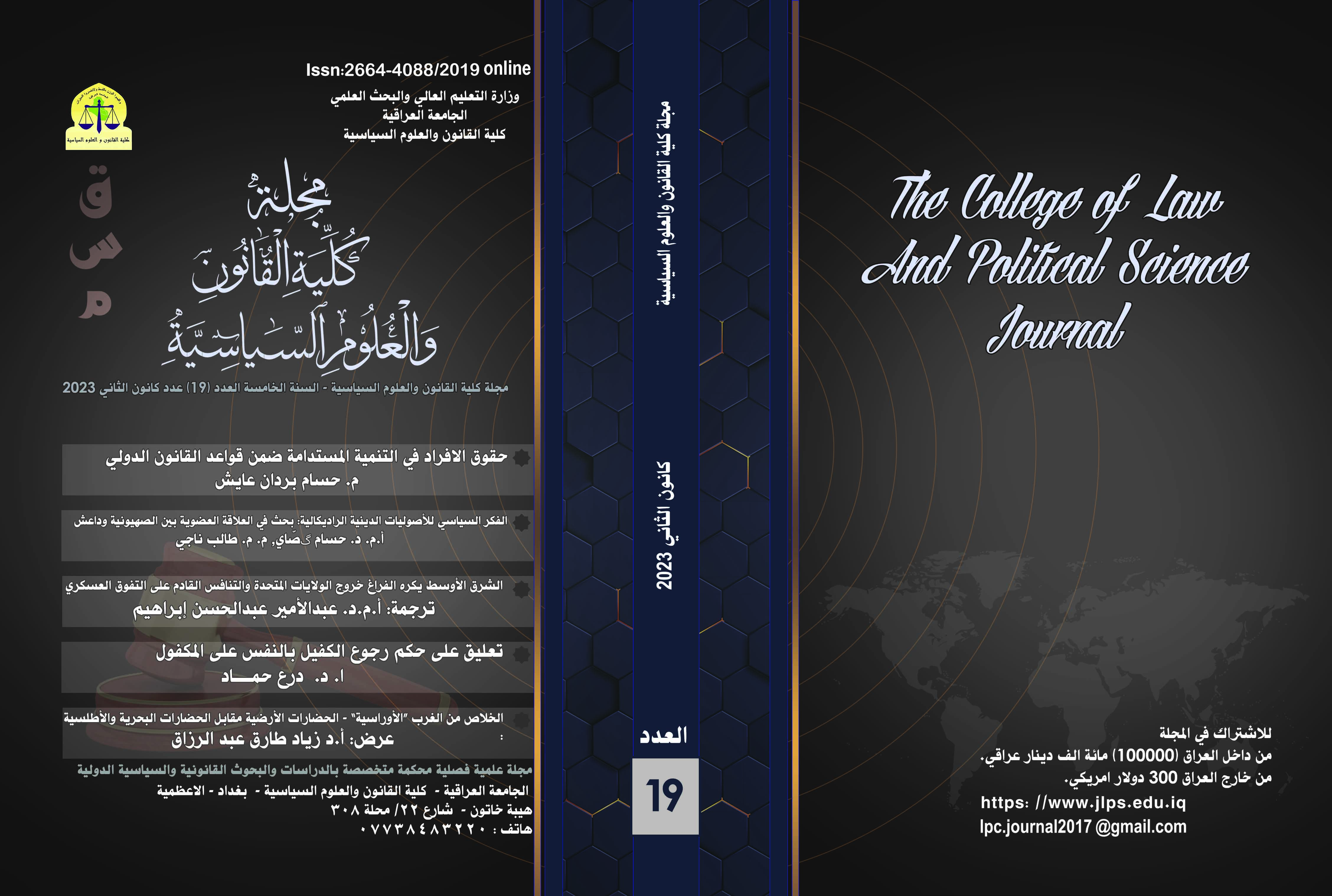Intellectual Reading on Issues of Globalization and Liberalism at Neoconservatives: Administration of the Trump is a Sample
DOI:
https://doi.org/10.61279/jv0vcf66Keywords:
United States, U.S. President, Globalization and liberalism, Donald TrumpAbstract
.After the collapse of the Soviet military machine following World War II in 1945 and the decline of the fascist-Nazi tide, the United States of America declared its victory (militarily and economically) and became the only superpower in the world. Its political role emerged at the expense of British-French influence, which increased its importance on the international scene, so it established The United Nations Organization, the Bank and the International Monetary Fund, and their efforts to extend their hegemony and their neo-colonial policy over the world in the nineties decade through what was termed (globalization). And globalization in the ideology of American politics is openness in all its meanings and forms between countries and the removal of all obstacles that hinder it in achieving its goals and pushing third-world countries to adopt American culture and work to change their authoritarian regimes with more free democratic political systems. However, the important historical events that took place at the beginning of the third millennium altered the face of the world and with it the course of international politics, and the United States began to lose control of the global economy as a superpower. With the advent of Donald Trump as master of the White House in 2017, U S domestic and foreign policy turned upside down. After liberalism represented the political approach of successive US administrations, Trump abandoned liberal thought, put obstacles to globalization, and began a new (Trumpism) policy of the free market and trade exchange.
Downloads
Downloads
Published
Issue
Section
Categories
License
Copyright (c) 2023 The college of law and political science journal

This work is licensed under a Creative Commons Attribution-NonCommercial-NoDerivatives 4.0 International License.

